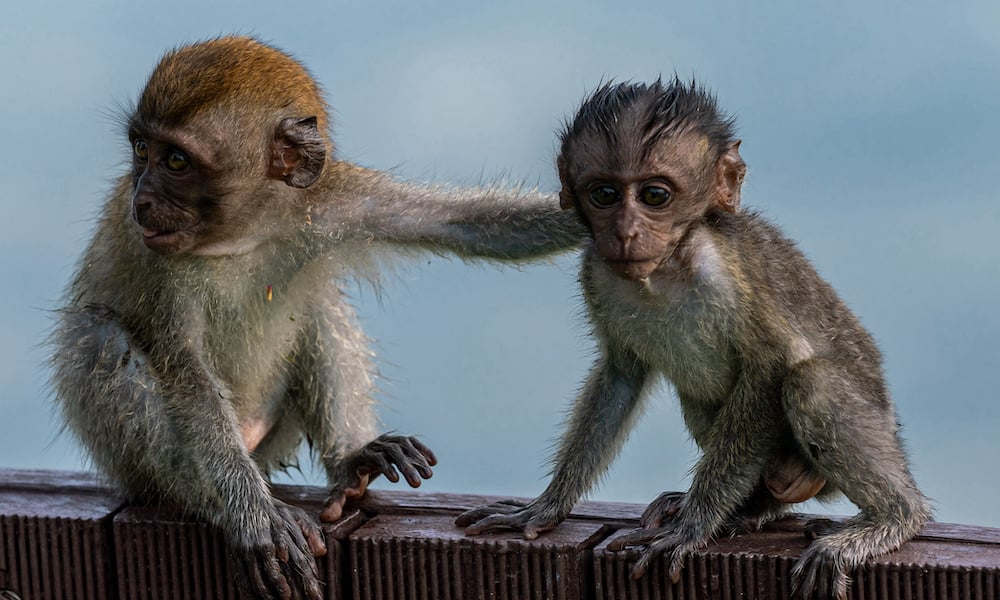A monkey species increasingly being exploited for research and people’s “entertainment” has now been listed as “Endangered” by the International Union for the Conservation of Nature (IUCN).
The long-tailed macaque (Macaca fascicularis) shifted from “Vulnerable” to the more critical endangered classification on The IUCN’s Red List, a running log of the planet’s most imperiled species, following a March re-evaluation.
Key factors in the sobering change include the current degree of exploitation the monkeys face from numerous threats, including climate change, habitat destruction, hunting for ‘food’ or ‘sport,’ death following human-monkey conflicts, and human encroachment for residential and commercial development, agriculture, aquaculture, and energy development.
The monkeys also face extinction due to to their increasing use in cruel biomedical research and animal testing and traffickers who pull them from their wild homes to sell them for profit as “pets,” according to the IUCN and nonprofit Action for Primates (AfP).
Long-tailed macaques are the most widely used non-human primate species for global research and toxicity testing, in which the monkeys are cruelly poisoned to test for a product’s possible health impacts on humans, despite irreconcilable genetic differences in the species that make such testing unreliable, AfP said in a press release.
They often also have to endure grueling journeys, spanning thousands of miles and dozens of hours, to reach laboratories worldwide from suppliers in Southeast Asia – including China, Cambodia, Vietnam, Lao PDR, Indonesia and the Philippines.
A joint investigation by Lady Freethinker and AfP documented abuse and neglect of infant macaques kept as ‘pets’ by owners who hit them, withheld food, bound them in restrictive clothing so that they couldn’t move naturally, and otherwise tormented them — all while filming the atrocious acts so they could post the videos to social media channels for ‘likes’ and page views.
While it’s not immediately clear what the macaques’ changed designation could mean for the multiple industries that exploit them, AfP Co-founder Sarah Kite said the endangered status needs to serve as a wake-up call.
“Because of the impact of human activities on the species and its habitat, especially the global trade in research and toxicity testing, the future of this intelligent non-human primate, who plays an important role in biodiversity and ecosystems, is seriously under threat,” Kite said. “Given that human beings are the cause of this threat, we have a moral obligation to act now – before it is too late – to protect and conserve the long-tailed macaque.”
AfP noted the global demand for long-tailed macaques has placed further pressure on wild populations and has voiced serious concern about both the illegal trade and the validity of claims by suppliers who say they are breeding monkeys for exports and deny capturing them from the wild.
If you haven’t already, please sign our petitions urging authorities to crack down on the illegal ownership of macaque monkeys, for the United States to stop funding monkey torture in U.S. labs, and for airlines and shareholders to stop the cruel transport of macaques for research.
SIGN: End Horrifying Cruelty to Cambodian Baby Monkeys Forced to Perform in ‘Cute’ Online Videos







